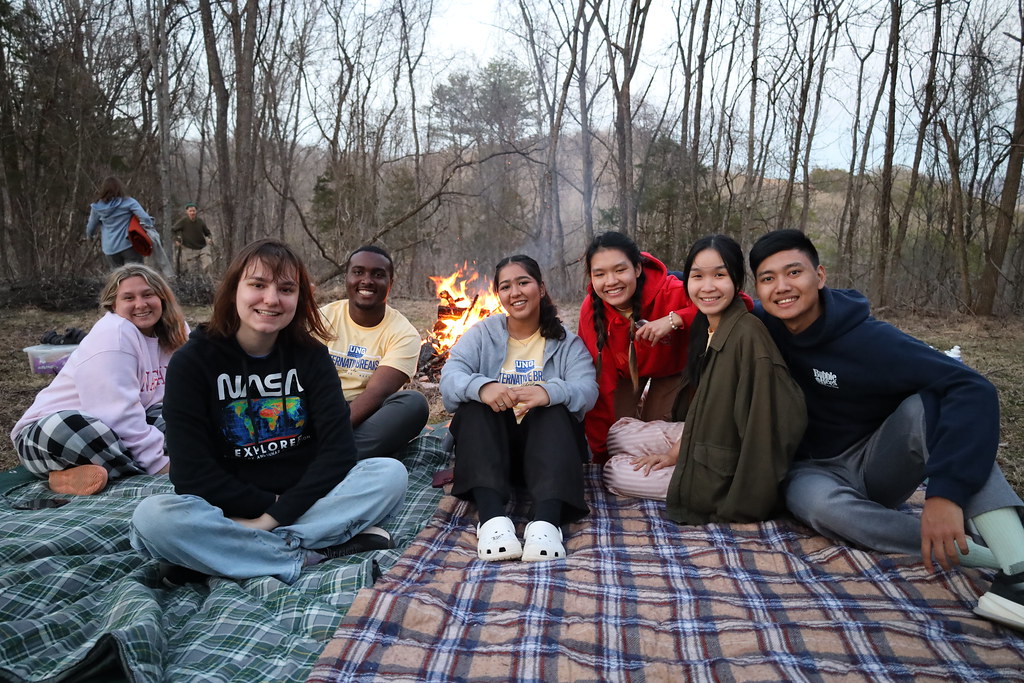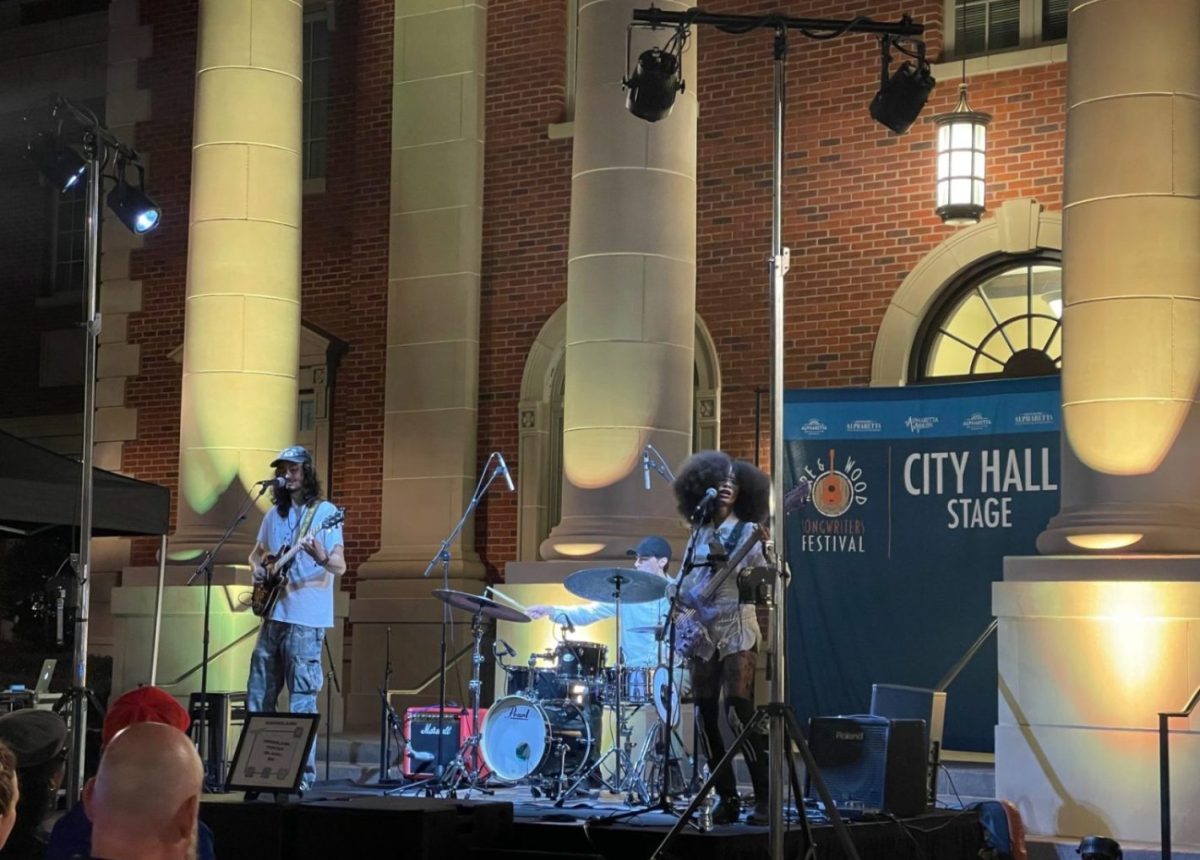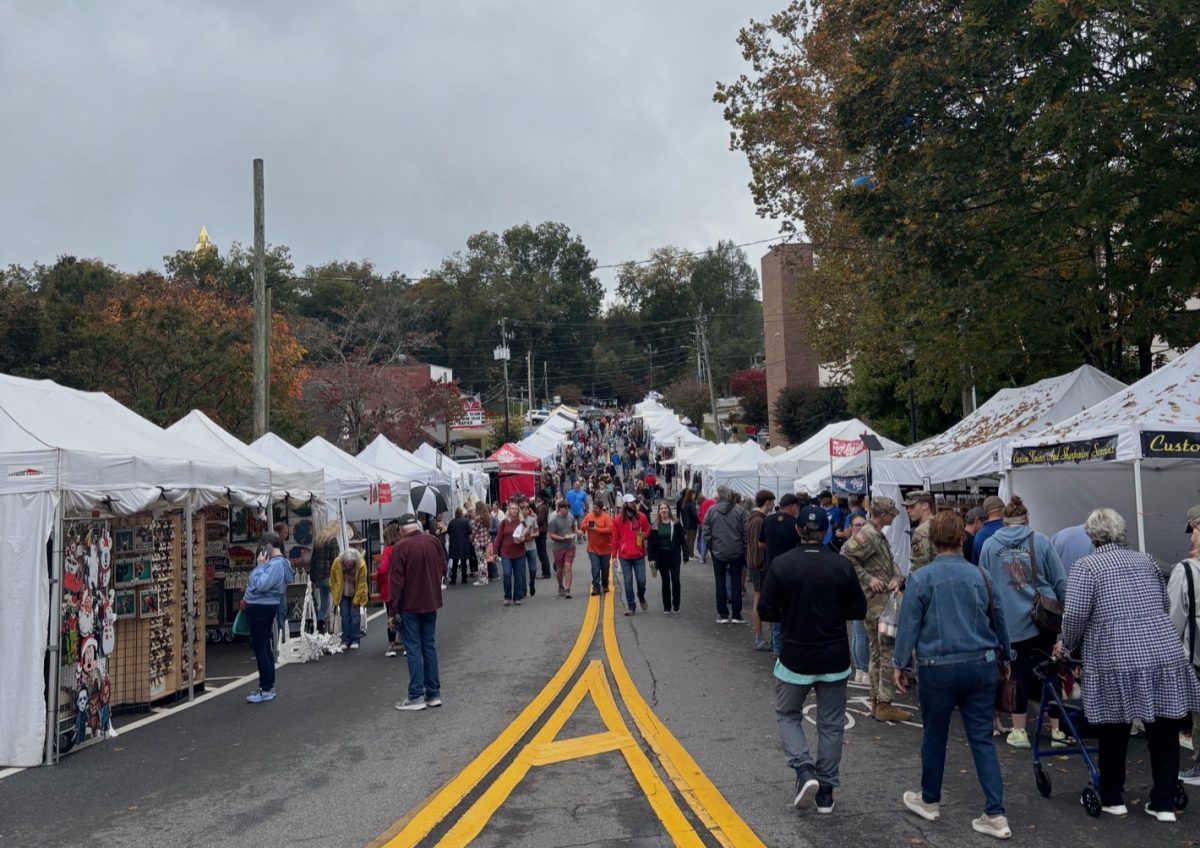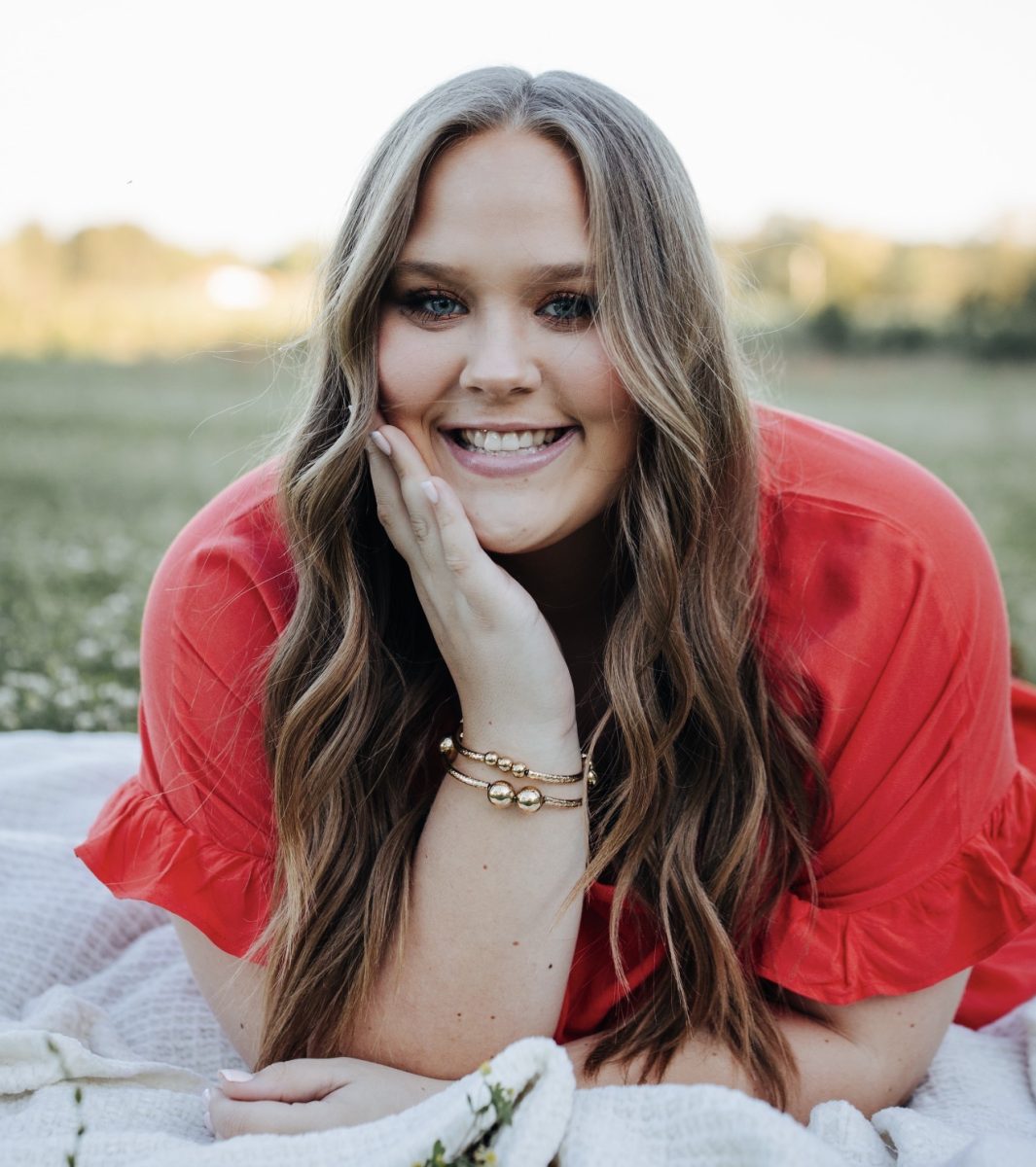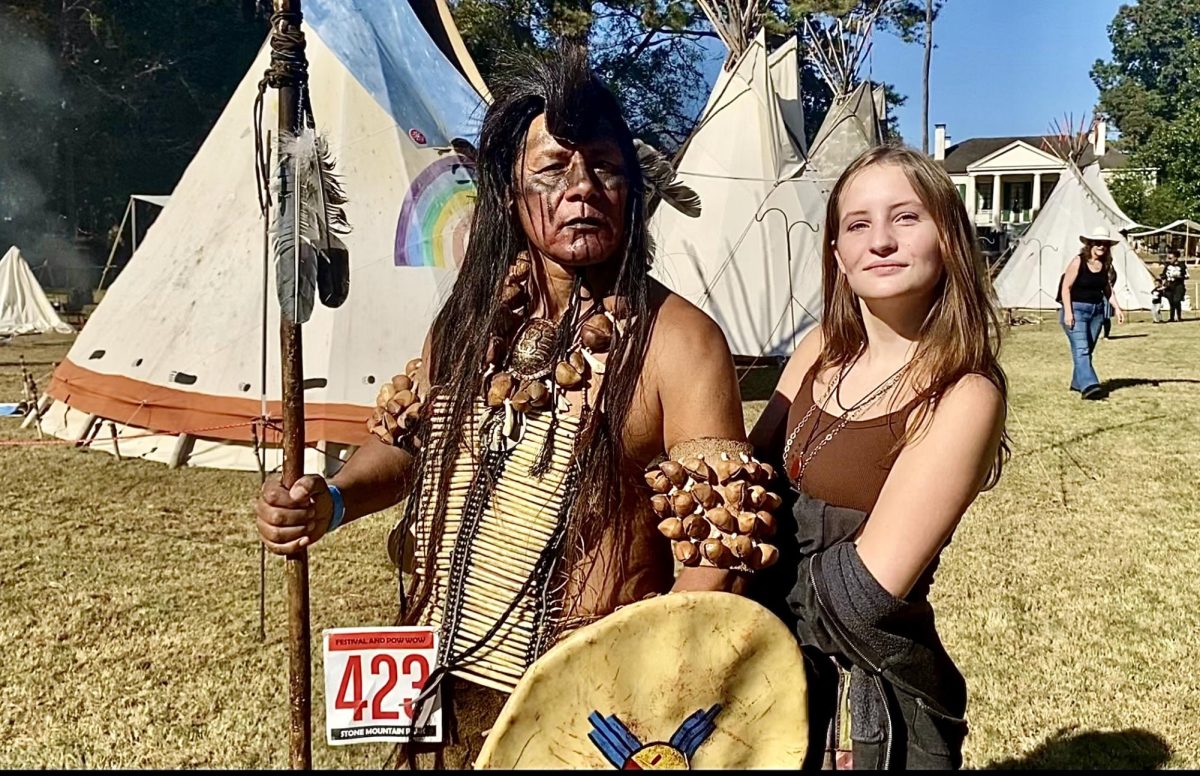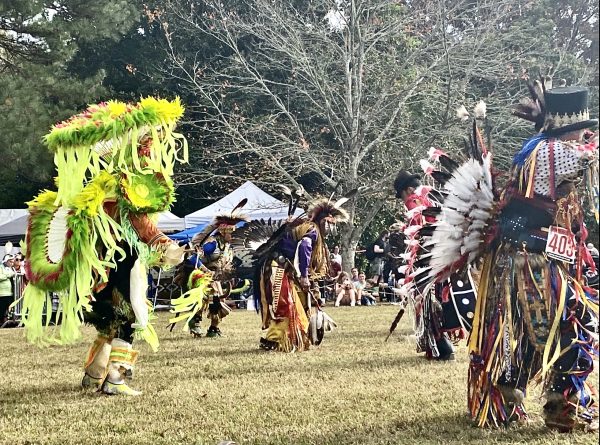
STONE MOUNTAIN, GA The largest Native American Festival and Pow Wow in Georgia draws the descendants of ancient tribes from all over the country during the first week of November. They gather for a competition of traditional native dancing to connect with other tribes and share it with the community. Their chanting voices, flutes and drumbeats can be heard all across the lawn under the shadow of Stone Mountain.
“We get energy from our Pow Wow competitions,” says the announcer, “we are sharing what we’ve got because that’s the only thing we have. We’ve just got our dances, our moves, our traditions and everything they symbolize.”
Vendors come to sell handcrafted silver and beaded jewelry, woven blankets and authentic leather items. Families sit around bonfires to listen to storytelling, lessons on hunting and gathering, cooking over fire and how to use resources without wasting them.
A Lakota tribal woman from Ohio sits next to a tipi weaving a skirt from the stalk of a Cat Tail plant. “We love to come here so that we can teach the children about our earth and how she provides all that we need. We use everything she gives us. They may never hear these things if we don’t come to teach them. It is so important to remember these methods, most have been forgotten,” she says.
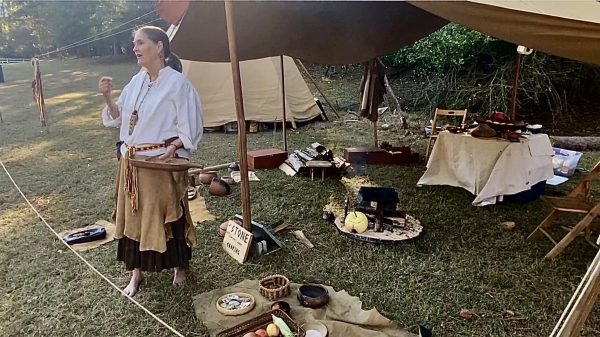
Native Americans cherish their beautiful, unique culture and they fear it will be lost and forgotten. On a mission to preserve their sacred traditions, they travel from town to town sharing the stories of their ancestors. An elder from the Iroquois tribe talks about the American Indian Wars. “They were fought as a result of settlers and governments’ desires for the lands that Indian tribes considered their own,” he says, “our population has been severely declining since the 1600s because of war and disease.”
Pow Wows are important platforms for indigenous people to come together to educate society about their tribal communities, and to enhance awareness of their history and the injustices they have faced and continue to face.
Delmar Uqualla lived on a reservation as a child, “I am a Camanche. I have learned we don’t have to fit in, we can just be ourselves. We are miracles because our ancestors survived genocide. It is easy for our traditions to fade away. This is our time to be heard.”
Melissa Hill from the Vias Reservation remembers, “I was growing up into partying and drinking. I realized the alcohol abuse is a symptom of what really happened to our people, and that is genocide and generational trauma. Our people are still lost and missing that connection. I am here to be that break, to heal myself and my people, and to pass on our culture and our traditions.”
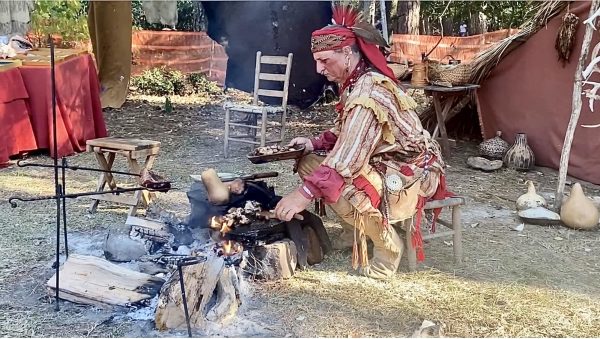
Kobe, a Native American from the Kuni tribe, says that they receive their middle names from wild animals. “My name is Bear,” he said, “It’s pretty cool. My generation, and the generation before we don’t know a lot of our own words and that just shows how little even Native Americans know about their own culture.”
In 2009, President Barack Obama declared the month of November as National Native American Heritage Month. The history of America began with Native Americans. The powerful uplifting spirit of Native Americans, along with their rich culture and diverse art can be appreciated by people of any background.









